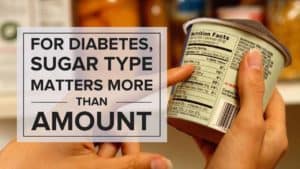
Are You Eating Too Many or Too Few Carbohydrates?
People are more aware than ever of which macronutrients (protein, fat, or carbohydrates) they’re consuming. And recently, there have been a number of diets like the Paleo diet and the ketogenic diet that focus on carbohydrate counting to specifically limit your carb intake.
The theory is that low-carb diets are effective because carbohydrates increase your blood glucose, and high levels of blood glucose can be a major concern if you’re living with any form of diabetes.
The logic is simple. Remove the carbs, remove the high blood glucose, get healthy. Right?
But actually, a diet high in carbohydrates — the right carbohydrates — can drastically improve your health and even contribute to reversing type 2 diabetes and insulin resistance.
In this article, we’ll explore how eating carbohydrates affect your blood glucose and your health as a whole.
Then, we’ll explain how to manage your daily carb intake for different goals, like weight loss or insulin sensitivity, and discuss the transition to a low-fat, plant-based, whole-food diet high in whole carbohydrates – a diet that has been proven to increase health and reduce your risk for chronic disease.
Blood Sugar Levels and Carb Intake: Why It Matters
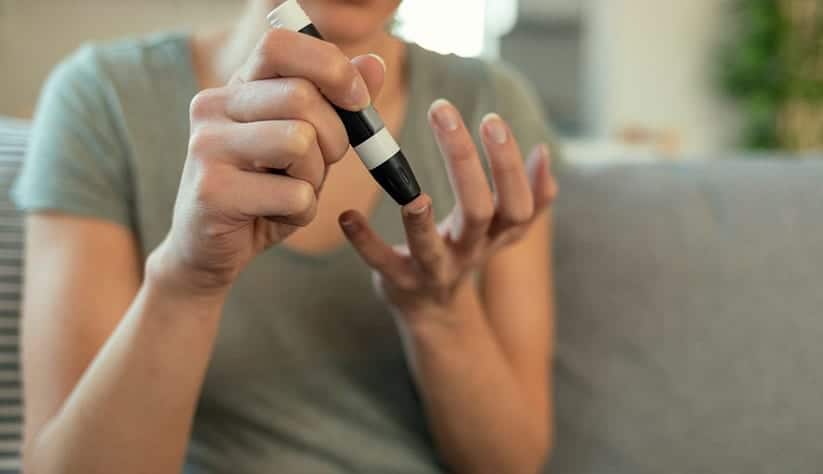
There are two main misconceptions around carbohydrates.
The first is that all carbohydrates are bad for you, and the second is that carbohydrates are the cause of diabetes.
First things first – all carbohydrates are not the same. Refined carbohydrates found in artificial sweeteners (like table sugar or high-fructose corn syrup) enter your bloodstream quickly and can cause elevated blood glucose quickly after eating a meal.
On the other hand, whole carbohydrates found in fruits, vegetables, legumes, and whole grains are surrounded by fibers and a host of micronutrients. As a result, your digestive system absorbs glucose at a reasonable physiological rate, resulting in a slow rise in your post-meal glucose.
Second, carbohydrates are not the underlying cause of diabetes, which can be a bit confusing at first since blood glucose levels are the key measurement for people living with all forms of diabetes. Since the goal with all forms of diabetes is to regain control of your blood glucose, it seems natural to carb count.
However, it’s important to understand that high blood glucose levels are a symptom of diabetes, not the root cause.
The underlying cause of most struggles with diabetes is actually an excess of dietary fat, which creates insulin resistance, which in turn increases your blood glucose values in the fasting and fed state.
Insulin resistance is the direct cause of prediabetes and type 2 diabetes, and can be an additional complication some people experience on top of type 1 diabetes.
So What Does All This Mean?
If you are living with a high degree of insulin resistance, then high levels of carbohydrate-rich foods will spike your blood glucose levels. This is vastly more prominent if you eat refined carbohydrate-rich foods.
However, in the long term, the best path to improving your diabetes health (especially if you want to reverse type 2 diabetes) is to become insulin sensitive by reducing the amount of dietary fat in your diet.
Reducing your fat intake will make your liver and muscles more insulin sensitive, which will then increase the action of insulin in both tissues. When this happens, the amount of insulin your pancreas produces will drop.
So how do you balance these two considerations to control your blood glucose at all times?
The most effective strategy is to gradually shift towards natural, whole carbohydrate-rich food over time, slowly removing high-fat foods and refined carbohydrates from your diet, along with other strategies like daily movement and intermittent fasting.
How Many Carbs Per Day for a Diabetic

According to the American Diabetes Association, lifestyle management is personalized for each person with diabetes.
It follows that your daily carbohydrate intake depends entirely on you and your unique situation, including your underlying level of insulin resistance, activity level, the type of carbohydrates you’re consuming, your target for overall caloric intake.
In general, a diet high in whole carbohydrates (which we recommend) will include about 70-80% or more of your daily calories from carbohydrates. The remaining 10-15% of calories come from fat and protein.
To find this number, take your target caloric intake, and multiply it by 0.7 or 0.8. This will give you the number of calories that should come from carbohydrates. Then, since there are 4 calories in a gram of carbohydrates, you can divide this number by 4 to get your target grams of carbohydrate per day.
However, there are some situations in which you may want to tweak this number or build to it slowly.
Type 2 Diabetes
Type 2 diabetes is caused by an underlying level of insulin resistance. Depending on the level of insulin resistance, eating high-carbohydrate foods may not work at first. That’s why we recommend doing it slowly over the course of a few weeks.
Slowly integrate more carbohydrate-rich food into your diet by starting with one meal a day for the first week. Next, integrate a second plant-based meal and keep that constant for another week.
Finally, integrate a third plant-based meal and keep that constant for another week. As you slowly integrate more plant-based meals into your diet, your blood glucose should remain controllable as you increase your carbohydrate intake towards 70-80% of total calories.
Combined with daily exercise and intermittent fasting, this plan can help you reverse type 2 diabetes fast.
Type 1 Diabetes
Type 1 diabetes can be a touch more complicated to manage than type 2 diabetes because you have to deal with an innate need for exogenous (external) insulin, as well as potential insulin resistance. That being said, the same principles are at play.
Set a target for 70-80% of your total calorie intake from whole carbohydrates, but make this change over the course of 3 weeks, as described above.
As you start to slowly change your diet to include more carbohydrate energy from plants and add in more exercise, you’ll likely notice you have a better time-in-range (TIR), require less insulin, and achieve your ideal body weight.
Prediabetes
Prediabetes often occurs before you have a severe case of underlying insulin resistance, so it’s easier to make the transition to a diet high in carbohydrates without worrying about blood glucose spikes.
However, these changes can still be a big adjustment to your lifestyle, so we recommend a gradual shift, as described above.
Slowly integrate more plant-based carbohydrate-rich meals, and lower your total fat intake to between 10-15%, and you’ll notice the difference within weeks.
The Truth About Carbohydrates and Weight Loss
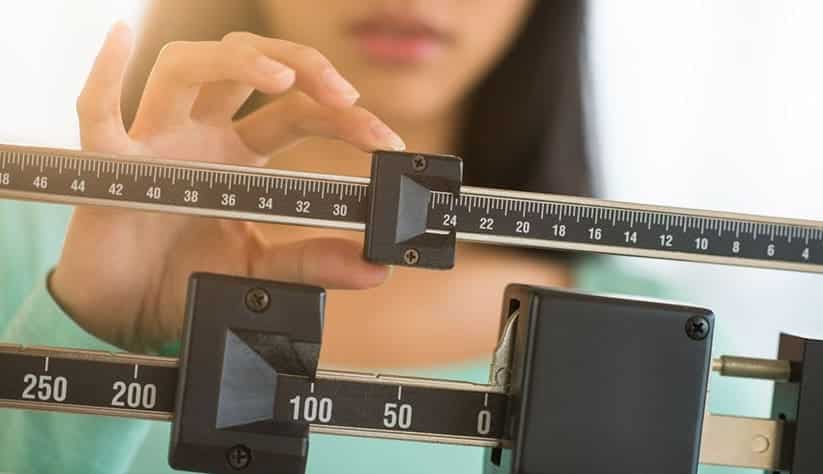
Weight loss is often recommended for people with diabetes, as it has been proven to significantly decrease insulin resistance, blood glucose, and blood pressure.
The foundations for weight loss are simple. Increasing physical activity, and managing daily calories to keep a slight caloric deficit provide steady and consistent weight loss.
However, there’s currently a lot of conflicting information about how the ratio of carbohydrates in your diet affects your weight loss, including frequently recommended ‘diabetes diets’ based on fewer carbs (like a Paleo diet or ketogenic diet).
However, there’s currently a lot of conflicting information out there about reducing carbohydrates vs. low-carb diets Paleo or ketogenic diets.
Low-Carb Diets (Paleo Diet, Ketogenic Diet)
The theory behind low carb diets is relatively simple: reduce total carbs, and by reducing the amount of carbs, reduce blood glucose.
These diets, and restricting your grams of carbohydrates, even have a number of quick, short-term benefits. They have been proven to lead to weight loss, reduced blood sugar levels, and improved blood sugar control, with relatively few side effects.
However, the trade-off of these diets is significant. High-fat diets significantly increase your level of insulin resistance, which increases your risk for conditions like chronic kidney disease, and means that if you ever add carbohydrates back to your diet, you’re likely to regain weight and exacerbate diabetes.
Which Diet Works Best for People with Diabetes?
For people with diabetes, we strongly recommend a low-fat, plant-based, whole food diet that is high in natural carbohydrates.
This diet has been proven to help with weight loss, bringing positive benefits for your diabetes health, and has the additional benefit of reducing your insulin resistance, as opposed to the negative effects of ketogenic-style diets.
Carbs for Diabetics
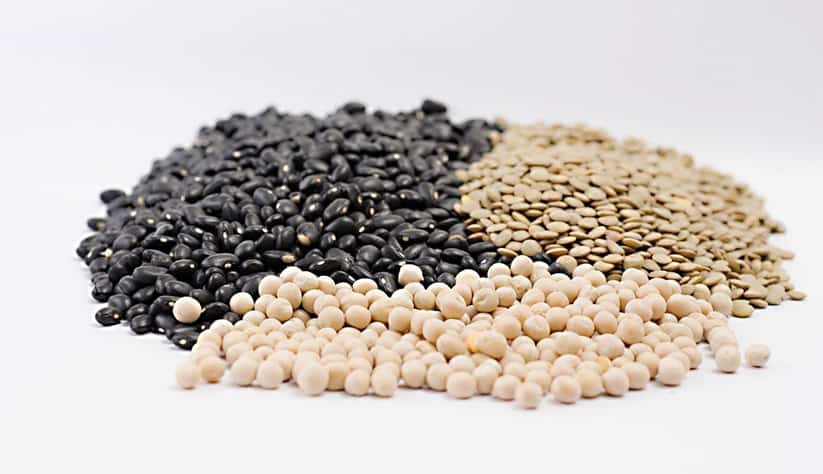
There are two main types of carbohydrates: whole carbohydrates, and refined carbohydrates. Our recommendation here is very simple. Eat more natural carbohydrates, and avoid simple carbohydrates whenever possible.
One good point of reference when checking food labels and nutrition facts is the number of ingredients. Though there are always exceptions, the fewer ingredients a food has (which in the case of herbs, plants, and fruits is just 1!), the less processed and more diabetes-friendly it is.
Add in a heavy priority towards plants due to the many risks associated with high-meat diets, and you have the basis of our more in-depth meal plan.
Good Carbs for Diabetics
Almost all whole, unprocessed plants are what we call green light foods, which means that you can eat them ad libitum (as much and as often as you want, with no concern for portion size).
Green light foods include:
Carbs for Diabetics to Minimize
On the other hand, we strongly recommend avoiding simple carbohydrates whenever possible. Though having these foods on occasion won’t singlehandedly cause diabetes, weight gain, or chronic disease, these ‘red light foods’ shouldn’t be considered a part of your regular diet.
Red light foods include:
You can find the entire traffic light system here.
Personalize Your Carb Intake for Diabetes
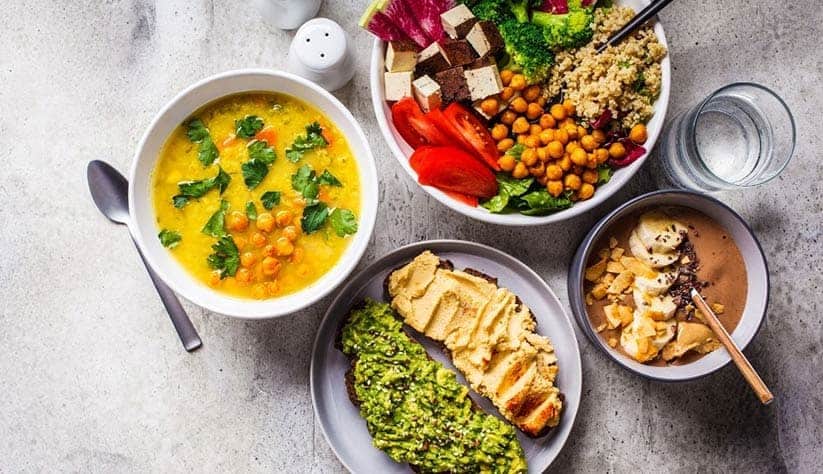
If you’d like to learn more about how you can reverse diabetes, lower high blood sugar, and get the health benefits of simply eating a more healthy diet, you can reach out to our coaches through our coaching program.
Our diabetes educators are experts with years of experience and the latest research and can work with you, your healthcare professional, and your registered dietitian to develop a healthy diet that works for you.
Stop Guessing What to Eat
Get Delicious Recipes Sent to Your Inbox Every Week!
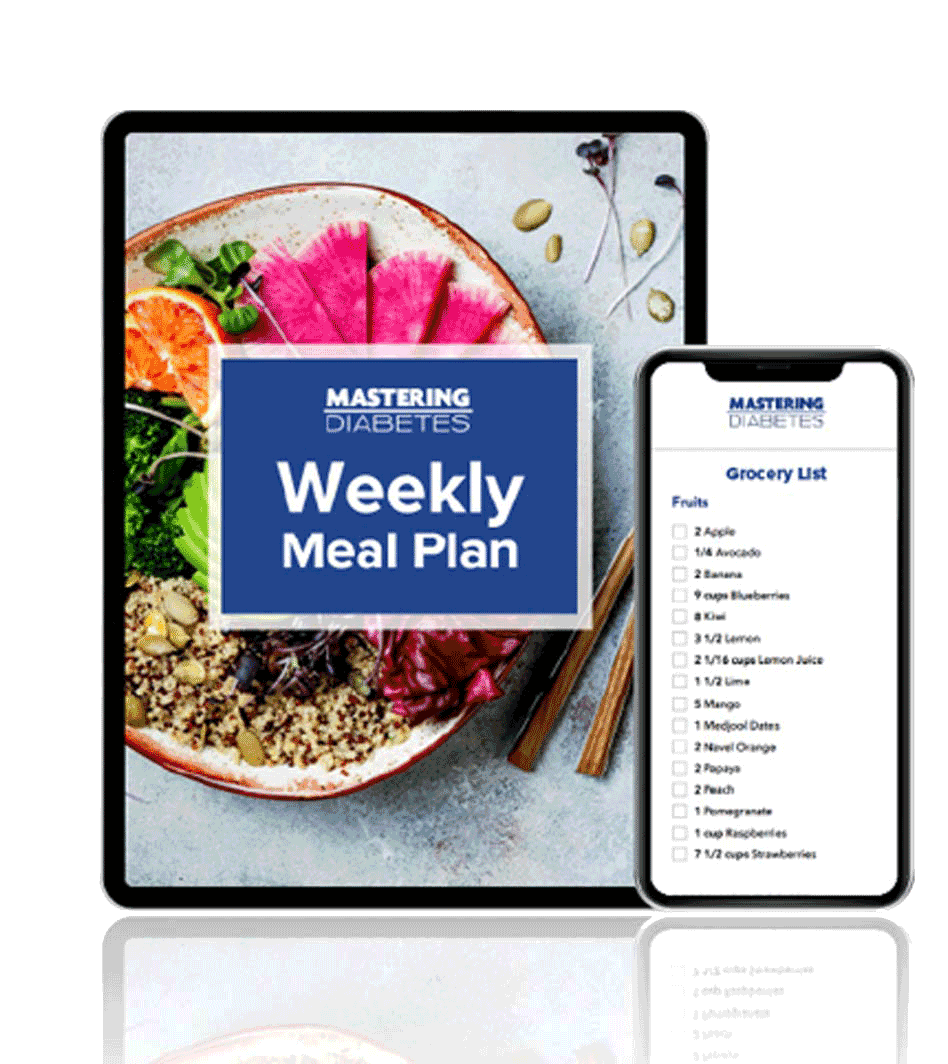
Discover the custom-designed Weekly Meal Plan that gives you clarity on what to eat and how to shop to simplify your journey to lower blood sugar, weight loss, and your best A1c



